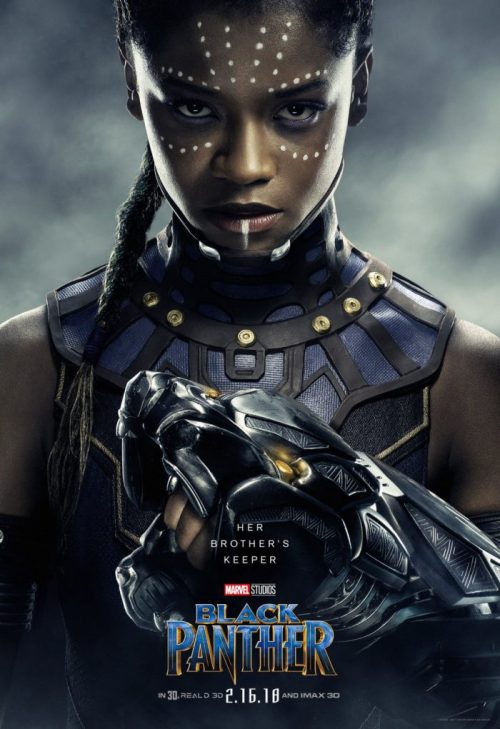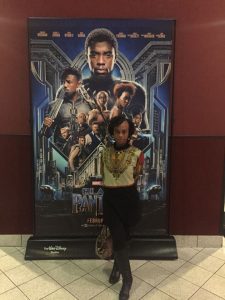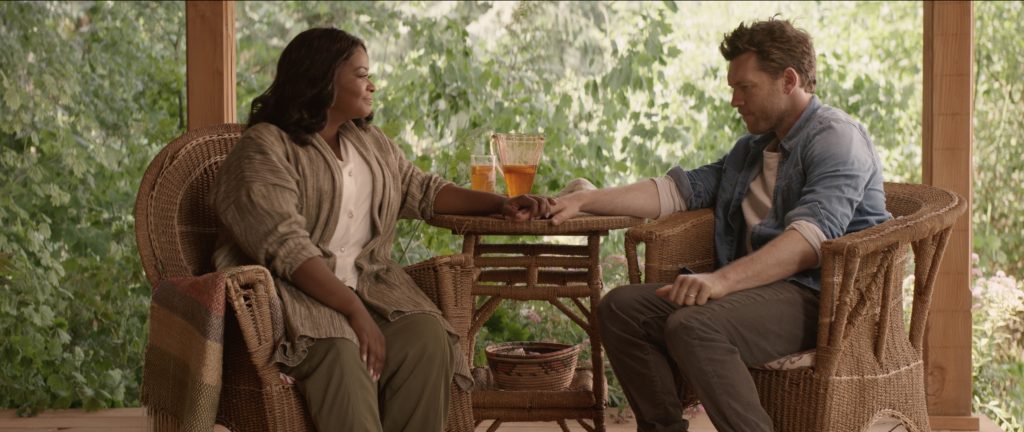
Hello World,
I’m back with my monthly roundup of blog posts and or articles for black Christian women! So below is my Top 10 monthly roundup of blog posts and or magazine/newspaper articles for black Christian women for February ( but you don’t have be a black Christian woman to to check them out 🙂 As usual, let me know if you like my list! Enjoy and share!
1. “See the Newly Unveiled Official Portraits of Barack and Michelle Obama” by Mary Rhodan
Excerpt: The National Portrait Gallery unveiled the long-awaited portraits of former President Barack Obama and First Lady Michelle Obama on Monday. The Obamas’ portraits were painted by New York based artist Kehinde Wiley and Baltimore-based artist Amy Sherald. They are the first African Americans commissioned to paint official portraits of the first couple for the National Portrait Gallery. The two artists’ works will be on display at the National Portrait Gallery starting on February 13. Aside from the White House, the Gallery is home to the only complete collection of presidential portraits; according to the Smithsonian, it is comprised of more than 1,600 works. See more at: time.com.
2. “Rosa Parks Was My Aunt. Here’s What You Don’t Know About Her” by Urana McCauley
Excerpt: Sometimes I struggle with social media because it seems there’s always somebody belittling Auntie Rosa. I recently saw someone post that my aunt wasn’t really black. Or people say that she was strategically placed on the bus in Montgomery because she was lighter skinned. It’s amazing to me that they would think that. Yes our family ancestry is part African American, part white, and part Native American. Auntie Rosa considered herself black and was treated as black. We have a lot of work to do in this country regarding colorism, but whether you’re light or dark — and this is still true today — you are black in America and you’re going to be treated accordingly. See more at: shondaland.com.
3. “‘Black Panther’ brings unexpected boost to makers of African inspired clothing” by Nedra Rhone and Shelia M. Poole
Excerpt: In Wakanda, the fictional African country from which Black Panther hails, the prints, colors and cuts of African clothing are woven throughout whether in an action scene, a street scene or a backdrop to other significant moments. Atlantan Carl Ulysses Bowen was one of tailors on the “Black Panther” film. Ulysses , who owns a tailoring and custom clothing business in Buckhead, said he added some of his own touches to the clothes designed by Ruth Carter. “I drew my inspiration from African culture and different African tribes within that culture,” said Bowen, who graduated from Morehouse College in 2005. He perused videos and looked at African history and photography books. He also scoured the internet. See more at: myajc.com.
4. “Ayesha Curry Is Pregnant, Expecting Third Child With Stephen Curry” by Emily Longeretta
Excerpt: The couple are already the proud parents to daughters Riley, 6, and Ryan, 3. The CoverGirl spokesperson met Curry, 29, when they were 14 and 15, attending the same church youth group. The went on to marry in 2011. See more at: usmagazine.com.
5. “Stephanie Paul stays true to Haitian heritage” by Yash Bhika
Excerpt: In Bayshore Drive in Naples, Florida, lies the Naples New Haitian Church of the Nazarene. The church is owned by Paul’s dad, Renauld. This is where she spent a good portion of her childhood. Paul would learn how to sing gospel songs, which she still sings to this day. Just as she was able to express herself inside her church, she also had the love and support of her family. It is in Naples where she grew up as the youngest of nine siblings. Her siblings are Lo, John, Jean, Matt, Josie, Nephtalie, Da-anna, Eunice and Dann. There is a 25-year age gap from Paul’s oldest sibling, Lo, to her. All of her siblings participated in sports either at the collegiate or the high school level. They all played basketball and Paul was able to learn from them. Despite such a large discrepancy in ages between the children, the love for each other was always there. See more at: redandblack.com.
6. “‘We Mean Business or No Washing’: The Atlanta Washerwomen Strike of 1881” by Brandon Weber
Excerpt: In the 1880s, twenty years after the “official” end of slavery in the United States, African Americans continued to suffer extreme oppression and violence. Lynchings were common and “separate but equal” Jim Crow laws gave African Americans minimal access to schools, the military, and labor unions—the kinds of institutions that helped other Americans move toward prosperity. It was in this context that a group of African American washerwomen in Atlanta organized themselves to demand better wages and working conditions. “The Washing Society,” as they called themselves, struck in the summer of 1881, taking on the business and political establishment of Atlanta, Georgia. The action served to remind the city’s white majority whom they depended on for the clothes they wore. The strike—a group of black women organizing against omnipresent discrimination to demand recognition and respect for their work—stands out in union history as a most unlikely success. See more at: progressive.org.
7. “Lillian Thomas Fox was a journalist and champion for her race” by Dawn Mitchell
Excerpt: History refers to Lillian Thomas Fox as a journalist and club woman, which seems to be a slight on a woman so far ahead of her time. As a black woman at the end of the 19th century, she became a champion for public health for the Indianapolis black community.Fox was born in 1854 in Chicago to Rev. Byrd Parker, an AME minister, and Janet J. Johnson, a schoolteacher. Fox’s father died in 1860, and her mother married Robert E. Thomas. The family moved to Wisconsin. Lillian took his last name. See more at: indystar.com.
8. “4 ways that black Catholic sisters rewrote the American story” by Diane Batts Morrow
Excerpt: As we observe Black History Month in 2018, examining the early history of the Oblate Sisters of Providence can teach us several important lessons. The sisters proved exceptional in 19th-century America: They were black and free in a slave society that privileged only whiteness; female in a male dominated society; Roman Catholic in a Protestant society; and pursuing religious vocations in a society doubting the virtue of all black women. Organized in Baltimore in 1828, this pioneering black sisterhood dedicated themselves to educating black girls. The Oblate Sisters confronted many challenges in their early years. Most white people did not believe that black people could lead virtuous lives and rejected as impossible the idea of a black Catholic sisterhood. See more at: catholicphilly.com.
9. “Doing a New Thing – A 21st Century Vision for AME HBCUs” by Tiffany Brockington
Excerpt: Arguably, the two most important black spaces in America are HBCUs and the Black Church. The importance and connection of both is outlined in the new documentary, “Tell Them We Are Rising: The Story of Historically Black Colleges and Universities.” The title of this documentary is attributed Richard Wright Sr., and serves as a directive which influenced not just the arc of the film, but several historically black campuses. See more at: hbcudigest.com.
10. “A Harlem Woman With A Wardrobe Worthy Of A Deeper Look” by Channing Hargrove
Excerpt: On Friday, Turner’s wardrobe went on display once again, this time at the Projects+ Gallery in Saint Louis, Missouri. Open now through March 31, the exhibit features a series of black and white photographs of Turner’s pieces by Dario Calmese, which explore the role of Black churches “as activators not only for imagination but as crucibles for the construction of self” within the African American community. Calmese, whose father was a pastor, has a personal connection to to Turner’s story. “Growing up in the church, the ritual of getting dressed for Sunday morning is a heavy thread in the fabric of my childhood memories,”he told Vogue. Through the photos, it’s evident that Turner has a similar collection with clothing. See more at: refinery29.com.
If you know of any black Christian women bloggers and or writers, please e-mail me at jacqueline@afterthealtarcall.com as I’m always interested in expanding my community of black Christian women blogs and websites. As I noted before, while this is a roundup of interesting blog posts and or magazine and newspaper articles for black Christian women, you don’t have to be one to appreciate these pieces 🙂.
Any thoughts?



 Hello World,
Hello World,
